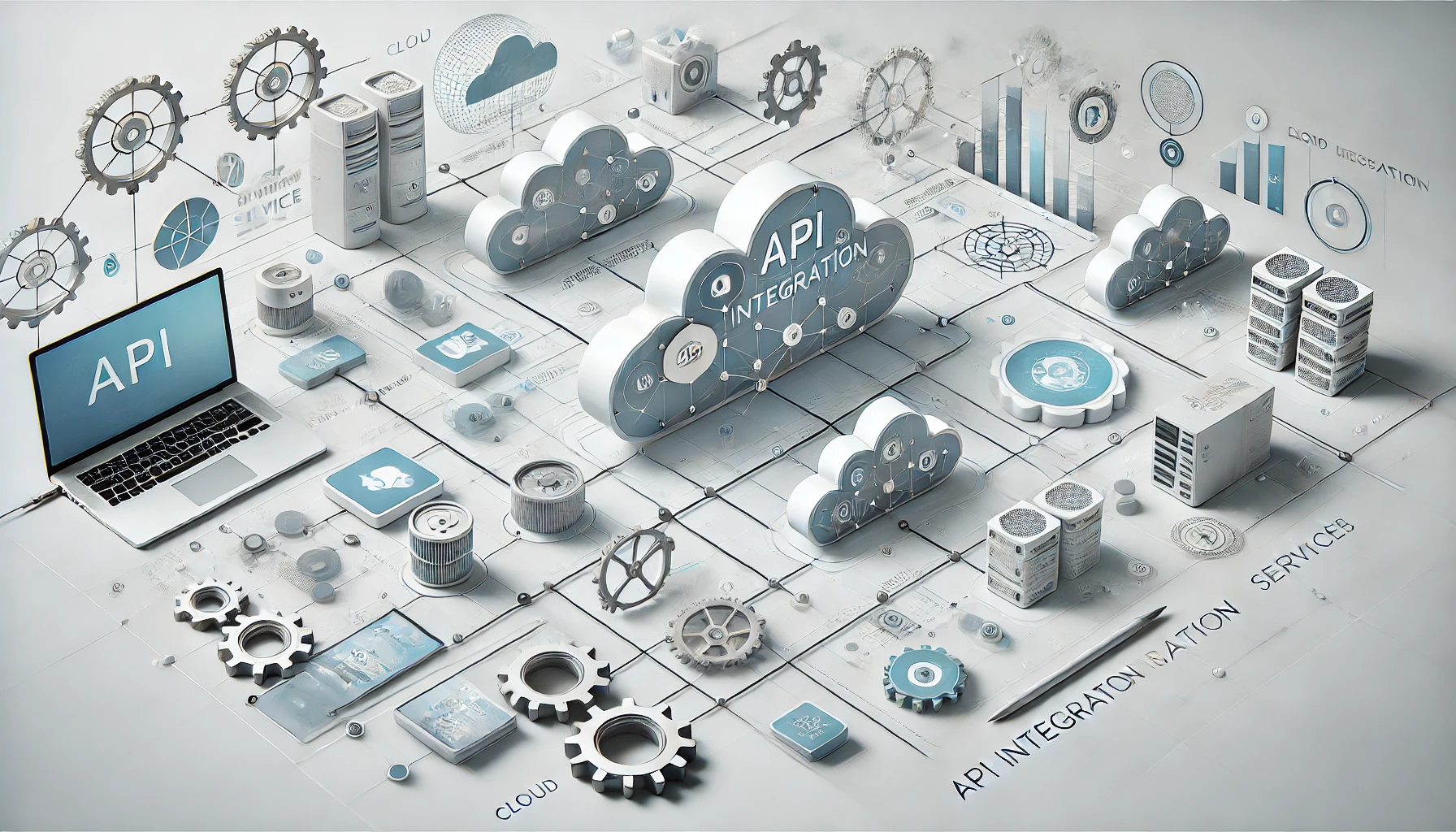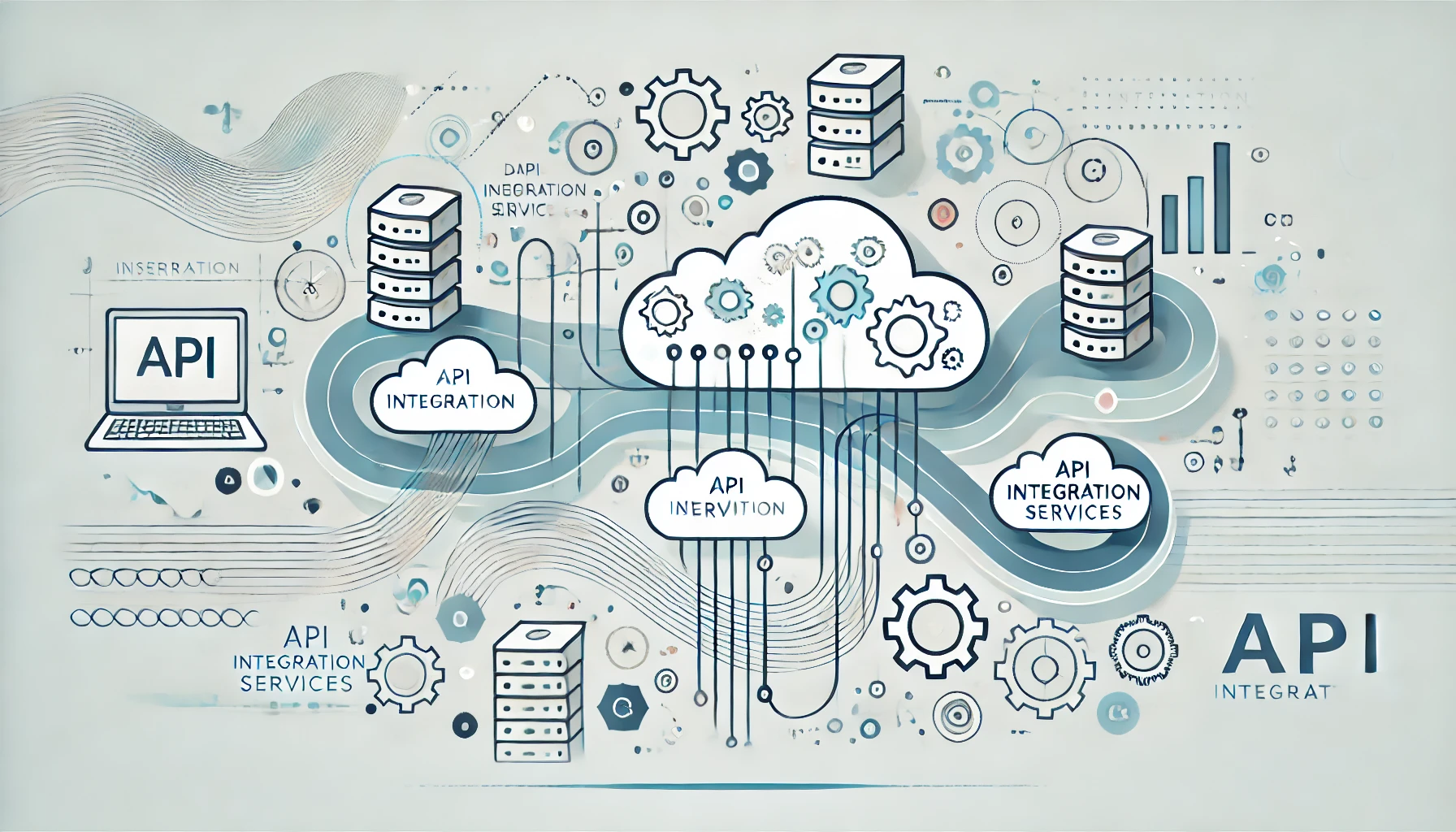When integrating APIs into your software like how a seamless payment gateway enhances an e-commerce platform, attention to eight key areas is paramount. From security protocols to performance monitoring and API selection, each aspect plays a vital role in ensuring a successful integration process. By exploring these fundamental areas thoroughly, you can pave the way for a robust and efficient API integration services and software development journey that meets both user and industry demands.
API Integration in App Development
When developing applications, integrating APIs is a crucial aspect that enhances functionality and user experience. App performance is a key consideration in API integration for app development. By utilizing APIs effectively, you can optimize app performance by offloading complex tasks to specialized services, reducing the load on your app’s servers, and enhancing overall responsiveness.
Security measures are paramount when integrating APIs into your app. Ensuring that the APIs you integrate comply with industry security standards and best practices is essential to safeguard user data and protect against potential vulnerabilities. Implementing proper authentication mechanisms, encryption protocols, and data validation processes can help fortify your app against security threats.
API Integration in Web Development
To excel in web development, integrating APIs plays a pivotal role in enhancing functionality and expanding the capabilities of your web applications. When integrating APIs in web development, two crucial aspects to consider are API security and performance optimization. Ensuring API security involves implementing authentication mechanisms, encryption, and proper access controls to protect sensitive data and prevent unauthorized access. Additionally, conducting regular security audits and staying updated on security best practices are essential to mitigate potential risks.
Performance optimization is equally vital in API integration for web development. Optimizing API calls, reducing latency, and implementing caching mechanisms can significantly enhance the speed and responsiveness of your web applications. Monitoring API performance metrics, analyzing bottlenecks, and fine-tuning your integration processes are key strategies to achieve optimal performance levels.
API Integration in Software Testing
In the realm of software testing, integrating APIs is a fundamental aspect that significantly impacts the efficiency and effectiveness of your testing processes. When considering testing strategies, incorporating API integration allows for comprehensive testing of how different software components interact, ensuring the overall system functions seamlessly. By integrating APIs into your testing processes, you can simulate real-world scenarios, validate data flow, and detect potential issues early on.
Moreover, API integration in software testing plays a crucial role in performance optimization. Through API testing, you can assess the performance of individual APIs, identify bottlenecks, and fine-tune response times. This proactive approach enables you to enhance the overall performance of your software by addressing any performance-related issues before deployment. Implementing API integration in your testing procedures not only enhances the quality of your software but also streamlines the development process by catching bugs early and ensuring optimal performance.
API Integration in Software Maintenance
During software maintenance, the integration of APIs plays a crucial role in ensuring the ongoing functionality and stability of your system. To effectively manage API integration in software maintenance, it is essential to implement robust API maintenance strategies. This involves regular monitoring, updating, and optimizing APIs to enhance performance and prevent potential issues.
API performance optimization is a key aspect of software maintenance, focusing on improving the speed and efficiency of API interactions within your system. Utilizing API versioning techniques is also vital to ensure seamless transitions when updates are made, preventing disruptions to existing functionalities. Furthermore, incorporating stringent API security measures is crucial to safeguard your system from potential vulnerabilities and unauthorized access.
Choosing the Right API for Software Development
When selecting the appropriate API for your software development project, it is crucial to conduct a comprehensive evaluation of various factors. Begin by evaluating the API’s documentation, ease of use, and community support. Look for APIs that align with your project’s specific requirements and goals. Consider the scalability and flexibility of the API, ensuring it can accommodate potential future changes or expansions.
Performance testing is another crucial aspect when choosing the right API. Assess the API’s speed, reliability, and response times under various conditions. Conduct thorough testing to determine how the API performs under different loads and scenarios to ensure it meets your software’s performance requirements.
Additionally, consider the security protocols implemented by the API provider. Ensure that the API complies with industry standards and regulations to protect your software and data from potential vulnerabilities.
Managing API Integrations in Software Development
As you progress in software development, you will encounter integration challenges that can hinder your project’s success. Efficiently managing API integrations is crucial to ensuring seamless communication between different software components. Streamlining API communication can optimize performance and enhance the overall functionality of your software solution.
Integration Challenges in Development
Navigating the intricate landscape of software development, one of the key hurdles that developers often encounter is effectively managing API integrations. To overcome integration challenges in development, it is crucial to implement robust integration strategies and steer clear of common development pitfalls.
One major challenge is ensuring seamless communication between different systems and applications. Developers must carefully plan and execute integration strategies to guarantee data consistency and reliability across platforms. Additionally, maintaining compatibility and consistency with evolving APIs poses a continuous challenge that requires proactive monitoring and updates.
Development pitfalls such as overlooking security measures, inadequate error handling, and poor documentation can lead to integration failures and system vulnerabilities. By prioritizing security protocols, implementing thorough error handling mechanisms, and documenting integration processes comprehensively, developers can mitigate these risks and ensure smooth API integrations in their software projects.
Streamlining API Communication
To ensure efficient software development and successful API integrations, optimizing API communication is paramount. Performance optimization plays a crucial role in streamlining API communication. By reducing latency and enhancing data transfer speeds, you can improve the overall performance of your software. Implementing efficient data formats and compression techniques can also help in achieving faster API responses.
Furthermore, security measures are essential when it comes to API communication. Utilizing encryption protocols such as HTTPS and implementing authentication mechanisms like API keys or OAuth can safeguard the data being transmitted between different systems. Regular security audits and updates are necessary to address any vulnerabilities and ensure data protection.
API Integration and DevOps
Utilizing API integration within the context of DevOps practices is crucial for streamlining software development workflows and ensuring seamless communication between different systems and services. DevOps collaboration involves breaking down silos between development and operations teams, allowing for faster and more efficient software delivery. By incorporating API automation into DevOps processes, organizations can automate repetitive tasks, reduce manual errors, and accelerate the deployment of new features.
API integration in DevOps enables teams to automate testing, deployment, and monitoring processes, leading to increased efficiency and productivity. Through automated API testing, developers can quickly identify and resolve integration issues, ensuring the reliability and performance of the software. Additionally, integrating APIs within the continuous integration/continuous deployment (CI/CD) pipeline allows for seamless delivery of updates and enhancements, enhancing the overall software development lifecycle.
Enhancing Software With API Integration
To enhance your software effectively, integrating APIs offers numerous benefits such as improved functionality, increased efficiency, and expanded capabilities. By leveraging seamless API integration solutions, you can streamline processes, access additional tools and services, and foster a more robust software ecosystem. Embracing API integration empowers your software to evolve dynamically, ensuring it remains competitive and adaptable in a rapidly changing technological landscape.
API Benefits in Software
How can software be elevated to new heights of functionality and efficiency? By leveraging API advantages, software benefits from enhanced capabilities and seamless integrations. APIs play a crucial role in expanding software functionalities by allowing different applications to communicate and share data effectively. Through API integration, software developers can tap into a vast array of resources and services, enhancing the overall user experience and performance.
One of the key API benefits in software is the ability to streamline processes and automate tasks. APIs enable software to interact with external systems, reducing manual efforts and increasing productivity. Moreover, API integration empowers software to access real-time data from various sources, enabling dynamic updates and informed decision-making.
Furthermore, APIs facilitate the creation of custom features and functionalities within software applications, catering to specific user needs and preferences. By harnessing API advantages, software can deliver tailored solutions that align with user requirements, ultimately leading to improved user satisfaction and operational efficiency.
Seamless Integration Solutions
By seamlessly integrating API solutions into your software, you can unlock a realm of enhanced functionality and efficiency. Data synchronization plays a crucial role in ensuring that information flows seamlessly between different systems, allowing real-time updates and accurate data across platforms. By leveraging API integration for data synchronization, you can streamline processes and avoid discrepancies that may arise from manual data entry or siloed systems.
Moreover, implementing robust security measures is paramount when integrating APIs into your software. Security protocols such as encryption, authentication, and authorization mechanisms are essential to safeguard sensitive information and prevent unauthorized access to data. By prioritizing security in your API integration, you can protect your software from potential vulnerabilities and ensure compliance with data protection regulations.
Frequently Asked Questions
How Can API Integration Improve User Experience in Software Development?
By leveraging API integration, you can enhance functionality and streamline processes, ultimately improving user experience in software development. Integrating APIs allows for seamless data exchange between systems, enhancing efficiency and user satisfaction.
What Security Measures Should Be Considered When Using API Integrations?
When using API integrations, ensure robust security protocols and encryption methods. Implement access controls, use HTTPS, and validate inputs to prevent attacks. Regularly update software and monitor for vulnerabilities to safeguard sensitive data.
Can API Integrations Help in Reducing Development Costs?
API integrations can significantly boost cost effectiveness by streamlining processes and reducing development time. They enhance development efficiency by leveraging existing resources, minimizing redundancies, and facilitating seamless communication between systems for optimal performance.
What Are the Common Challenges Faced When Implementing API Integrations?
When tackling API integrations, you’ll face challenges like deciphering the intricate maze of data mapping and mastering the art of error handling. Stay vigilant in navigating these hurdles to ensure seamless integration success.
How Does API Integration Impact the Scalability of Software Applications?
When integrating APIs, you face challenges like data consistency and security. However, API integration offers scalability benefits by enabling modular growth and flexibility. Efficient integration mitigates these challenges, optimizing software applications for future expansion and performance.


